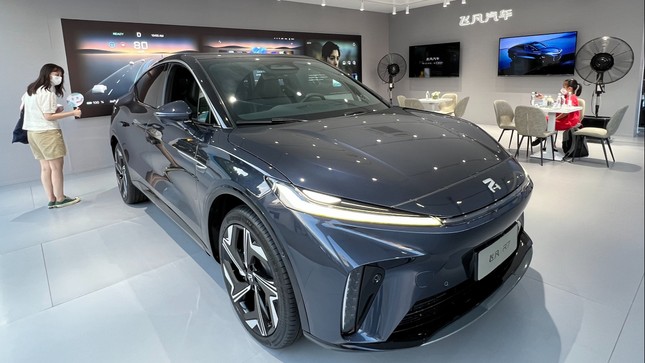EU Preparing to Impose Tariffs on Chinese Electric Cars
The European Union (EU) is planning to impose tariffs on Chinese electric cars that are currently being imported, as well as those that will be imported in the future. This move comes after the EU accused the Chinese government of subsidizing the production and export of affordable electric vehicles.
Evidence of Subsidies
Through an anti-dumping investigation initiated in October last year, the EU has gathered sufficient evidence to prove that Chinese electric cars are indeed being subsidized. As a result, the retail prices of these vehicles in Europe have remained low.

Image: Electric cars produced by China are likely to face tariffs when entering Europe in the future.
Price Challenge
One recent example is the BYD Seagull, a 4-seater electric car, which has been priced below €10,000. In contrast, the cheapest electric car in the same segment in Europe, the Dacia Spring, is priced at €20,800. Comparatively, Chinese-made cars are more than half the price, posing a significant challenge for European car manufacturers.
According to Bloomberg, imports of Chinese-made electric cars have increased by more than 14% compared to the same period last year, since the investigation began. The report also revealed that one-third of the electric cars exported from China are destined for Europe. This has raised concerns within the EU that European car manufacturers could be harmed if imports from China continue to rise at their current rate, causing long-term consequences that could prove difficult to rectify.
Ongoing Investigation
Chinese automakers, including BYD, Geely, and SAIC, are still under investigation by the EU to determine whether their electric vehicles receive state subsidies, giving them a competitive edge in terms of lower retail prices in Europe compared to local brands.

Image: The EU is preparing to impose tariffs on Chinese electric cars.
Chinese Displeasure
Unsurprisingly, China is not pleased with the news that its electric cars are being investigated and may soon be subject to tariffs in Europe. The Chinese Chamber of Commerce in Europe expressed disappointment in the EU’s actions, stating that the increasing import volume only reflects the growing demand for electric vehicles in Europe.
On the other hand, the Chinese Ministry of Commerce criticized the aforementioned investigation, stating that it is blatant protectionism that will severely disrupt and distort the global automotive industry and supply chain, including Europe. They also believe that the EU’s actions will have a negative impact on the economic and trade relations between the two sides.
To learn more about the latest news and developments in the world of finance and economics, visit Business Today.
